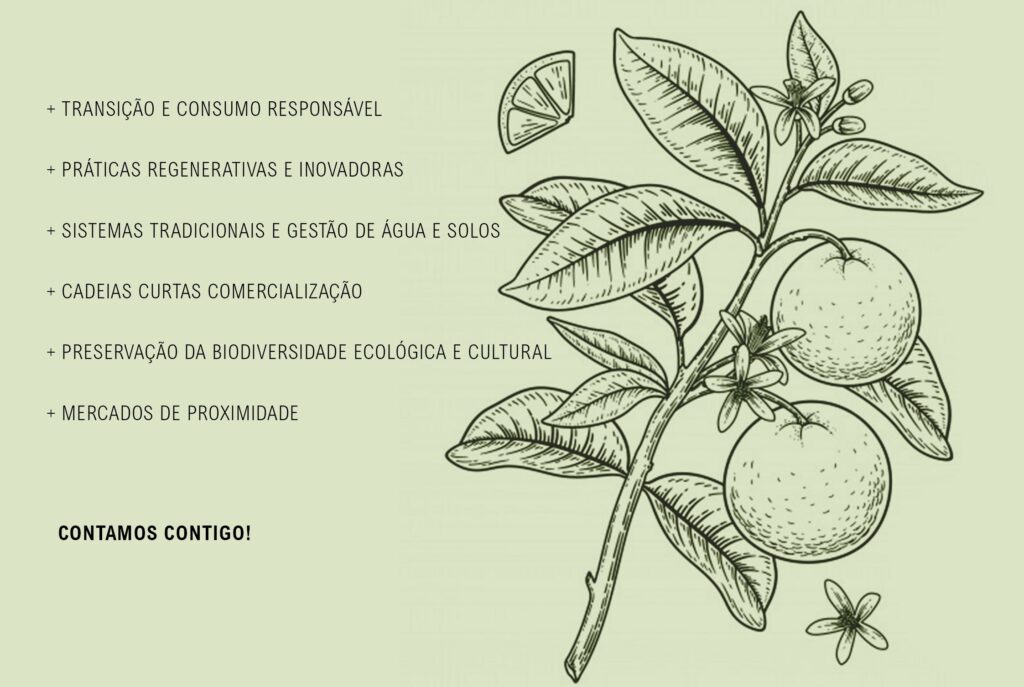“Agroecology: Fair production model for responsible consumption” will be the subject of debate at the sixth session of the Citizenship Forum, an online event scheduled for Sunday, the 9th, at 18 pm, and which can be seen on the facebook page of the Citizens movement by CEAT and Urban Gardens of Tavira.
The event will have several guests, to talk about different topics.
Rosa Dias, from Quinta da Fornalha, is invited to speak on “Traditional systems and water and soil management”.
The theme “Regenerative and innovative practices” will be addressed by Pedro Nogueira, from the Centro de Agroecology de Mértola, and by Alfredo Sendim, from Herdade do Freixo do Meio, while Ana Ferreira, from Cooperativa Integral Minga and Henrique Gomes, from Biofrade, to speak of “Short marketing chains and proximity markets”.
There will also be talk of “Transition to organic production”, with honors going to Jorge Ferreira, from Agrosanus, and Elisabete Couto and Duarte Reis, from ViraBio, as well as “Preserving ecological and cultural biodiversity”, a task to position of António Marreiros, from the Algarve Regional Directorate of Agriculture and Fisheries, Helena Freitas, from the Center for Functional Ecology of the University of Coimbra and Laura Tarrafal, from the Agricultural and Rural Women of Portugal (MARP).
The conclusions will be in charge of Artur Filipe Gregório, from the In Loco association, resident guest of the Citizenship Forum.
The moderation is in the hands of members of the Citizens' movement by the Tavira Agricultural Experimentation Center (CEAT) and Tavira Urban Gardens.
"Across the world, intensive agricultural models using high use of pesticides have led to overexploitation, contamination and erosion of soils and pollution of water and air, leading to a rampant and unprecedented loss of biodiversity." frame the promoters of the event.
A reality that threatens existing biodiversity in food systems and places “the future of our food, livelihoods, health and environment under serious threat”.
Organic farming uses biodiversity-friendly practices, however, "represents little more than 1% of the global agricultural surface".
For the members of the movement that organizes the debate, it is "important" to have "an innovative approach", when drawing up a national strategic plan, arguing "that agroecology will be the key to producing an essential transition to sustainable food systems".



















Comments